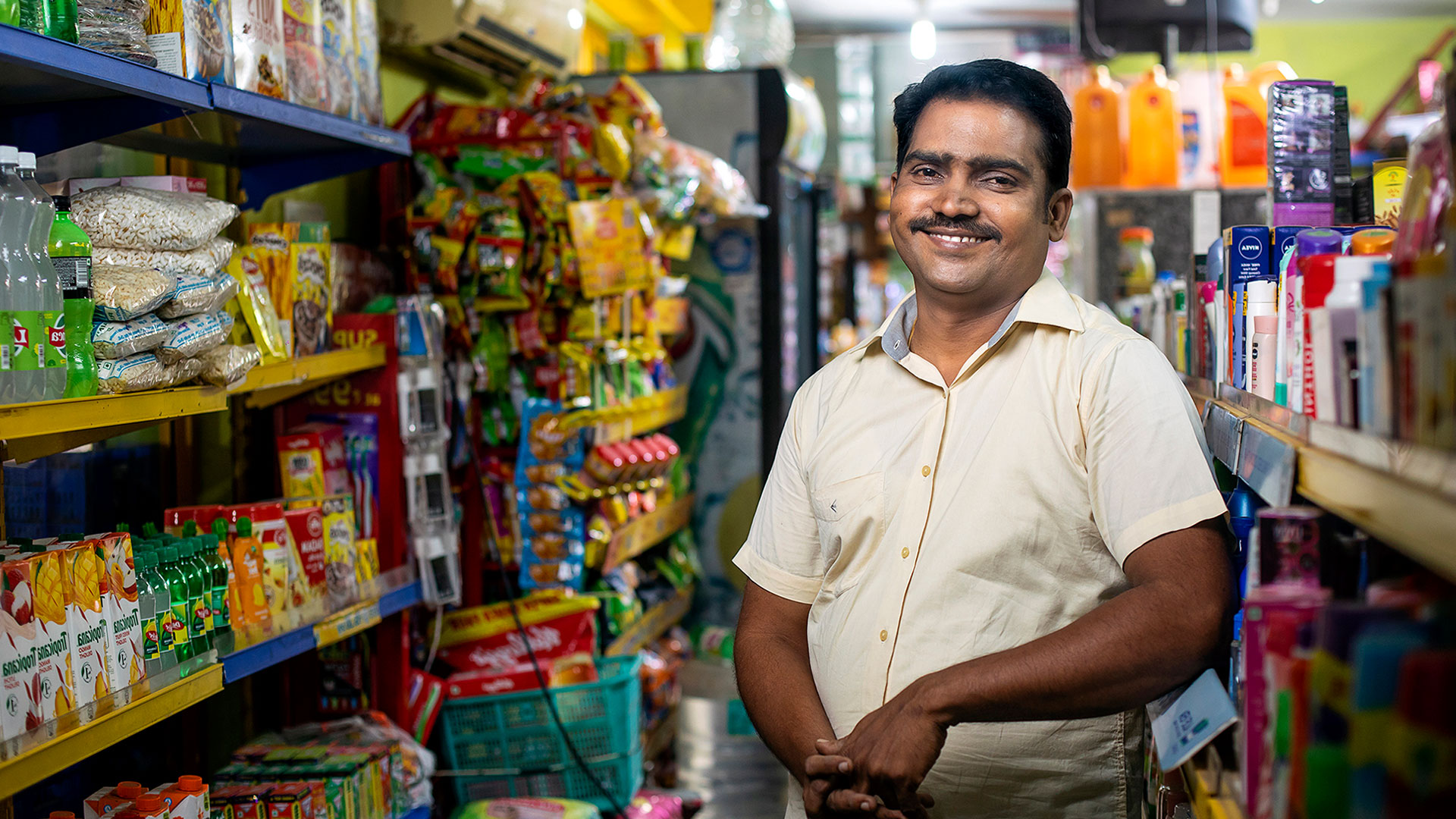A new approach to supporting SMEs in Ghana
Picture a manufacturing business that is looking to borrow to expand but is required to repay the entire loan in a year’s time, just as its new factory is coming online. An IT services company that offered all its properties in collateral but was told it was not enough to access a loan. Or an education company unable to grow because there are limited flexible funding options to match seasonal cash flows.
These stories reflect the real experiences of Ghanaian SMEs.
Why do SMEs matter?
By Government of Ghana definitions, less than 1 per cent of enterprises are considered ‘large’.[1] It is therefore no surprise that SMEs are so often described as the foundation of the Ghanaian economy. SME growth would mean more jobs, more tax revenues, more locally made goods and services, and more opportunities for women. In other words, it would help to harness Ghana’s potential for economic progress and to reduce poverty. But to achieve this, SMEs need the means – including finance – to grow. Building on Ghana’s solid SME economy cannot happen without adequate access to capital.
The gap in SME finance and its consequences
Banks are good at short-term lending to firms with established track records and collateral, while private equity funds are good at providing longer-term financing for larger businesses who are happy to dilute their ownership. But this leaves sizeable gaps in access to finance for the thousands of businesses, typically SMEs, that struggle to meet the collateral, track record, or size requirements of traditional funding sources. Only half of SMEs in Ghana have accessed credit from banks – 75 per cent of which is shorter than 3-years in tenor – and only a handful raise private equity or venture capital funding each year. This gap between needs and availability of finance leads to frustrated entrepreneurs, unemployed and underemployed workers, and investors that want to put their capital to productive domestic use but lack the channels to do so. A waste of talent, ideas, and resources. At the same time, the lack of domestic productive capacity contributes to a reliance on imports of goods and services, straining limited foreign exchange reserves and adding to macroeconomic pressures.
The commercial opportunities of underserved SMEs
The estimated addressable SME market in Ghana stands at over 23,000 businesses – compared with fewer than 130 large businesses – amounting to an estimated combined turnover of at least US$57 billion.[2][3] With 72 per cent of Ghanaian SMEs at least partly financially constrained, this represents a huge volume of missed commercial opportunities.[4] Our research shows that in a sample of Ghanaian SMEs, the majority had increased their turnover, profit, and cash flow in the past year, with the most cited use of profits for savings/investment and the purchase of inputs/inventory and equipment. Yet this can only take them so far. As one focus group participant put it: “We do most things from our own pocket… but you can’t grow from your pocket.”
The consequences of the SME financing gap and the commercial opportunity it presents lies behind British International Investment’s (BII) motivation for establishing Growth Investment Partners Ghana (GIP) to do things differently.
What is Growth Investment Partners (GIP) Ghana?
GIP will offer innovative and differentiated growth capital to SMEs.[5] This means financial products that both differ from the standard market offering and are tailored to the needs of each borrower. Through this approach, GIP will stand alone as a new platform to provide flexible capital over long horizons based on long-term earning potential, not short-term track record and collateral. It will also push beyond a purely financial offering through support services to strengthen business performance. All these features have been identified as SME priorities through our extensive market testing and stakeholder engagement.
A new model, backed by experience
BII is aiming to fill a gap in the market using something new. The GIP model draws lessons from the best SME funders across Africa and around the world. Backed by BII’s 75 year history of investing for impact, and a Ghanaian founding team at GIP with one of the most impressive track records in banking and SME investing in Africa, entrepreneurs and SME owners have a seasoned partner alongside.
The GIP Board includes Albert Essien (Chair), one of Africa’s most noteworthy bankers and former Group Chief Executive Officer of EcoBank, and former Chief Operating Officer of Ecobank’s Corporate & Investment Banking Division, Rosemary Yeboah. The senior management team will be led by Jacob Kohli as Chief Executive and Investment Officer, one of Africa’s top Private Equity (PE) professionals who has been instrumental in the establishment of Ghana’s PE/VC industry. The collective expertise of the Board and senior management team will help to establish GIP as a key partner for investors and businesses alike in seizing the opportunities of the SME market.
The structure
GIP will provide capital to SMEs across sectors in local currency from a permanent capital structure. So, unlike a conventional private equity or private credit fund, it will not need to wind-up and return capital to its investors after a fixed number of years, thus better aligning with a patient focus on long-term growth. Being backed entirely by long-term equity investors means that GIP does not face the liquidity risks that discourage banks from long-term lending. While GIP will build a large portfolio compared to a traditional fund, it will be more targeted and bespoke than a bank or other lenders – making the best of both worlds. Every aspect of the model is designed to achieve scale and maximise reach and impact.
The products
GIP will employ a menu of innovative financial products, providing US$500k to $5m in local currency capital. SMEs should not be forced to assume all the risks of borrowing in US dollars, and those businesses earning hard currency revenues are too few to be relied upon to fuel growth alone. Increasing local currency options for patient capital is critical to Ghana’s economic success.
A primary reason for the unmet SME financing need is the lack of financial products with repayment structures, tenors, collateral requirements, and degrees of flexibility that are appropriate for SMEs
GIP’s products will also feature flexible repayments linked to revenue and cash flows, further insulating borrowers from risk in return for higher payments when business performance is strong. This affords both risk protection to the borrower – they repay less if the business does less well – as well as some upside for GIP – receiving higher returns if the business thrives.
Adding value beyond capital
GIP will establish itself with SMEs not as a lender but as a long-term partner. It will take the time to understand businesses and share in their financial risk/reward, but also look to add value beyond capital by providing business support services. Not only is this better for people and the planet, but the business case is clear. Better run, more environmentally and socially responsible companies will be more competitive and able to access new markets, identify cost savings, improve productivity, attract and retain staff and build human capital, and enhance their reputation and brand.
GIP will seize this opportunity by providing support services targeted at key areas: financial management, improving governance, and environmental and social support.
The GIP management team has also committed to building a diverse team that is representative of women, including targets at the Board of Directors, Investment Committee and employee level, in addition to incentivising investments in women-led businesses. This will be complemented by BII’s new technical assistance facility Ghana Investment Support Programme, as well as UK Government initiatives that aim to increase investment flows to underserved SMEs more broadly across the market.
The institution and its investors
Establishing GIP as an enduring institution is a key success measure. A prerequisite for this goal is delivering commercially attractive financial returns in order to secure investment from local institutions.
The gap in the market GIP is designed to fill, the products it offers, and the expertise of its management team will deliver compelling returns and offer needed diversification to institutional investors. This is particularly important given the minimum allocation to “Variable Instruments” introduced under the 2021 regulatory guidelines for Ghanaian pension fund managers.
While the high cost of long-term borrowing in Ghana makes leveraging GIP’s returns challenging, the expectation is that even with limited debt funding in its capital structure, GIP’s unlevered returns will compare well against alternative investment options. GIP, unlike PE funds, will also offer investor returns in the form of both capital appreciation and a steady yield. Further investments of local currency equity capital into GIP, and its ability to recycle this capital on an ongoing basis, will fuel GIP to greater scale, profitability, and impact.
GIP aims to establish itself as a favourable alternative financial investment for institutional investors, fuelling its growth and replication elsewhere in Africa and beyond.
Capitalising on Ghana’s promise through GIP
BII recognises the potential of Ghana’s economy, its businesses, and its people. Despite a challenging macroeconomic climate, there is a clear opportunity to address a fundamental market failure in a way that can unlock growth and reduce poverty whilst capitalising on commercial opportunities in a way that benefits investors. The SME financing gap is a long-standing, global challenge, and sometimes old challenges require new thinking to unlock lasting, scalable solutions. GIP’s innovative business model is set to deliver this and bring lasting benefit to Ghana, Africa, and beyond.
[1] Integrated Business Establishment Survey
[2] S&P Capital IQ (2022)
[3] SMEs defined here as businesses with turnover of between US$500,000 and US$15m (GHS5-150m). Combined turnover based on BII commissioned research on number of businesses of different sizes multiplied by the lower bound of revenue for the respective group.
[4] MSME Finance Gap Database (2018)
[5] For the purpose of GIP’s target market, ‘small’ refers to businesses with 15-30 employees and $300k-500k turnover, ‘medium’ to 31-100 employees and $500k-2m turnover, and mid-‘cap’ 101-300 employees and $2m-5m turnover.










